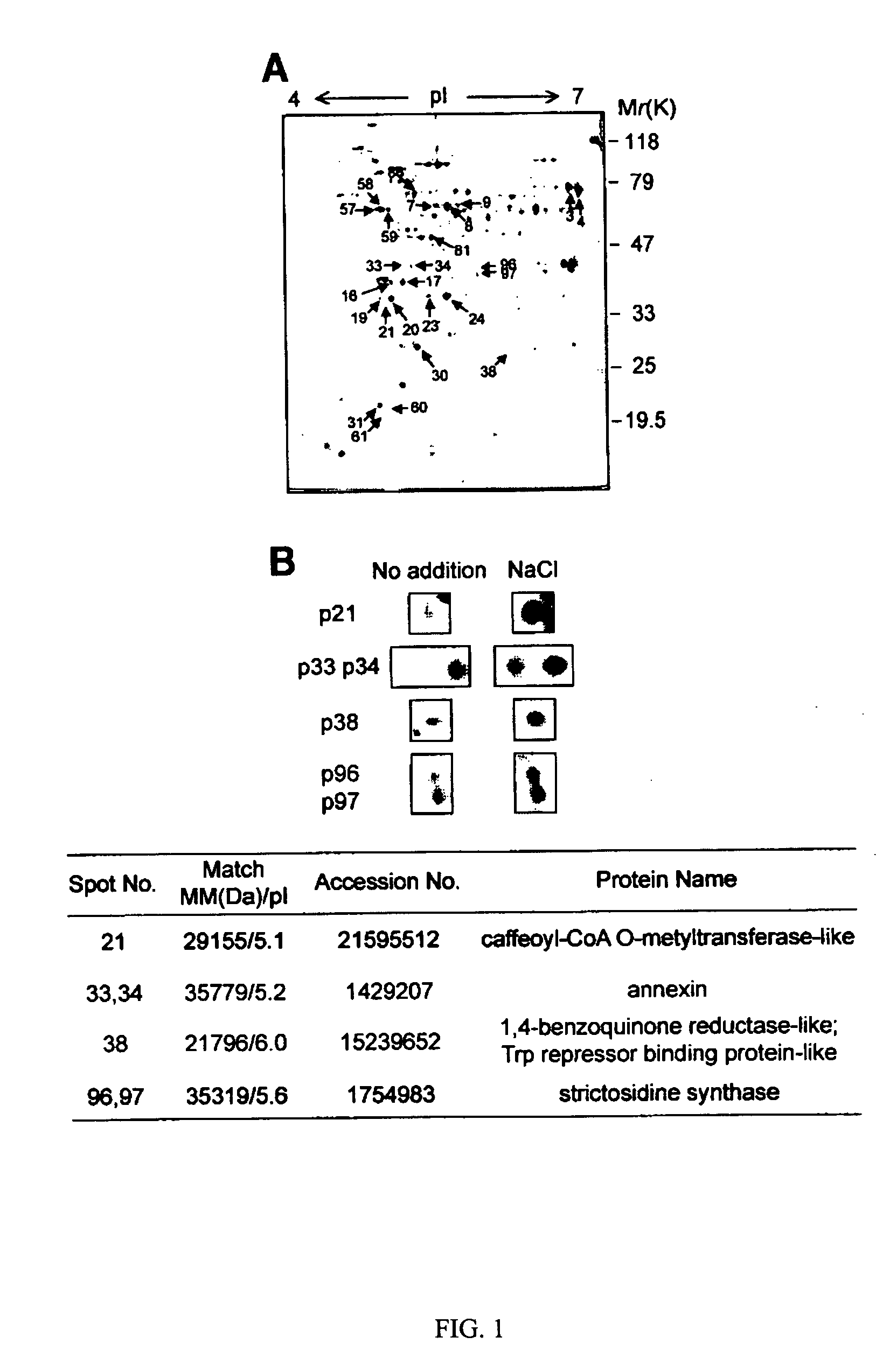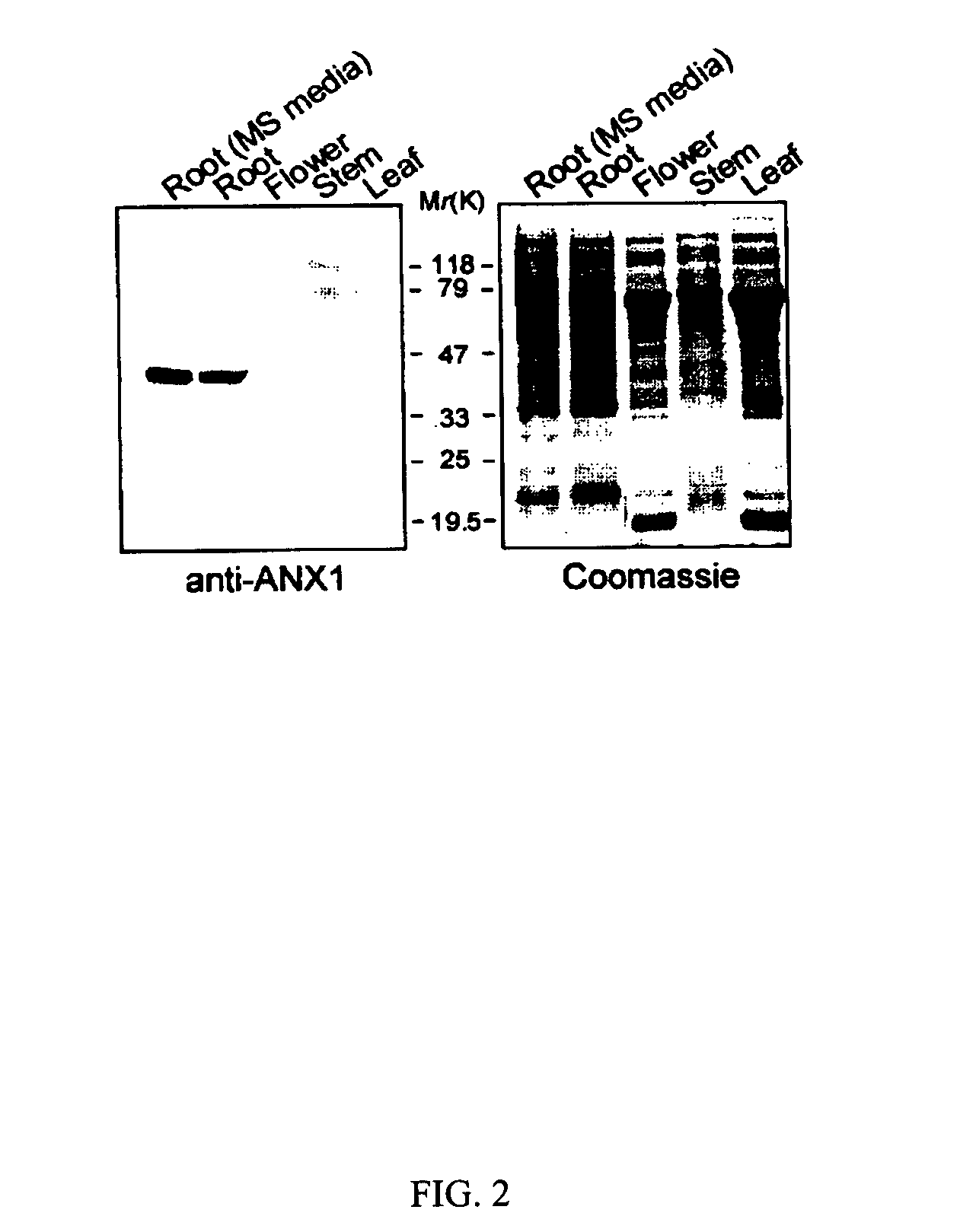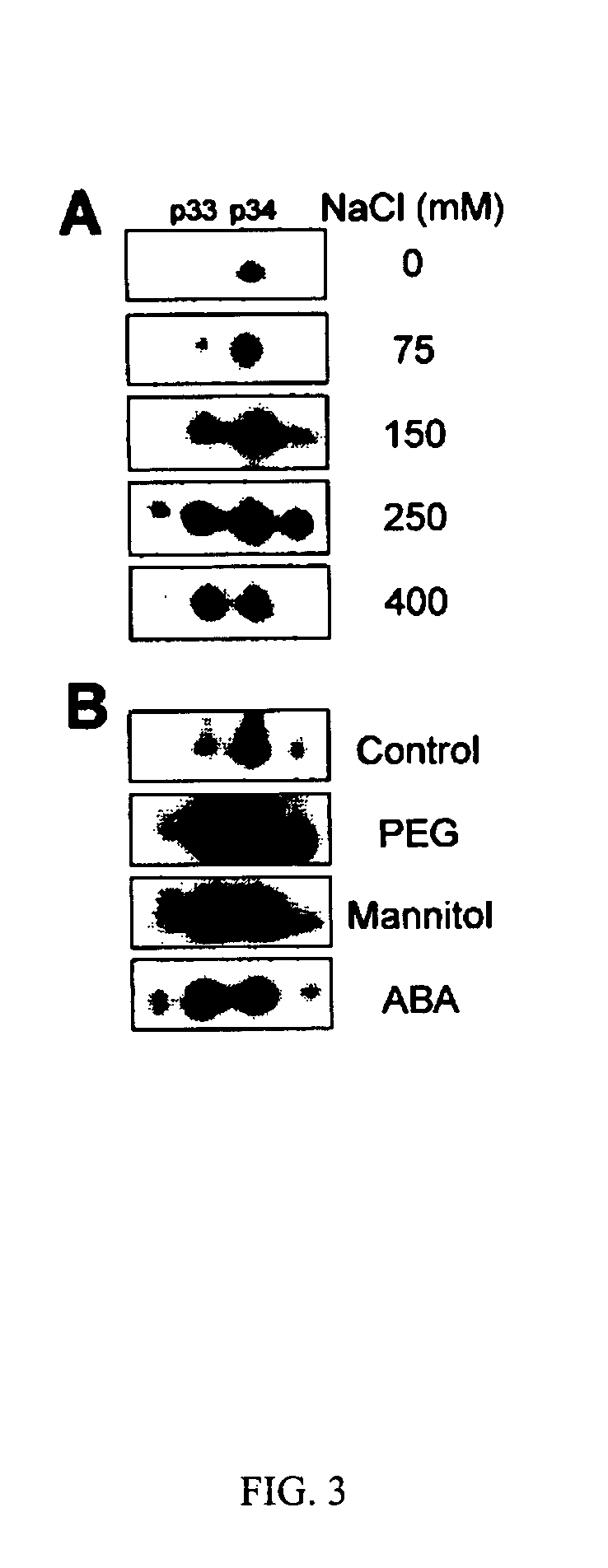Nucleic acid molecules encoding annexins from plants
a technology of annexins and nucleic acids, applied in the field of stress resistance in plants, can solve the problems of reducing productivity and disrupting ionic and osmotic homeostasis, respectively, and achieve the effect of improving resistance to environmental damag
- Summary
- Abstract
- Description
- Claims
- Application Information
AI Technical Summary
Benefits of technology
Problems solved by technology
Method used
Image
Examples
examples
Plant Materials and Growth Conditions
[0034]Arabidopsis thaliana ecotype Columbia (Col-0) was grown in a growth room under long-day conditions (16 h / 8 h, light / dark cycle). T-DNA insertion mutants, anx1 (SALK—015426), anx2-1 (SALK—054223), anx2-2 (SALK—054238), anx4-1 (SALK—109725), anx4-2 (SALK—039476) and anx4-3 (SALK—073121), were obtained from the Arabidopsis Biological Resources Center (ABRC) (Columbus, Ohio, USA). For plant materials, plants were either grown in soil for 3 weeks or in Murashige and Skoog (1962) (MS)-sucrose (2%) liquid medium for 2 weeks.
Germination Test
[0035] For seed germination analysis, sterilized seeds were plated on MS-sucrose (2%) agar medium. Various concentrations of NaCl, KCl, ABA, mannitol, LiCl and CsCl were added, as described in the Results section. Germination (emergence of radicles) was scored daily for days. Three replicate plates were used for each treatment to ensure reproducibility of data.
Preparation of Microsomal and Cytosolic Prote...
PUM
| Property | Measurement | Unit |
|---|---|---|
| Electrical resistance | aaaaa | aaaaa |
| Stress optical coefficient | aaaaa | aaaaa |
| Hypersensitivity | aaaaa | aaaaa |
Abstract
Description
Claims
Application Information
 Login to View More
Login to View More - R&D
- Intellectual Property
- Life Sciences
- Materials
- Tech Scout
- Unparalleled Data Quality
- Higher Quality Content
- 60% Fewer Hallucinations
Browse by: Latest US Patents, China's latest patents, Technical Efficacy Thesaurus, Application Domain, Technology Topic, Popular Technical Reports.
© 2025 PatSnap. All rights reserved.Legal|Privacy policy|Modern Slavery Act Transparency Statement|Sitemap|About US| Contact US: help@patsnap.com



